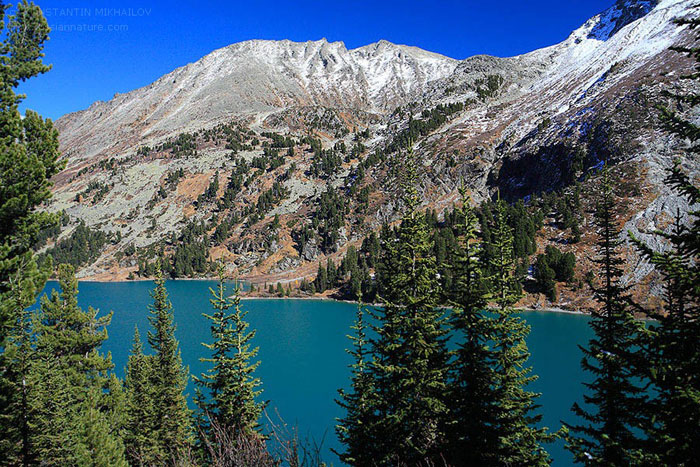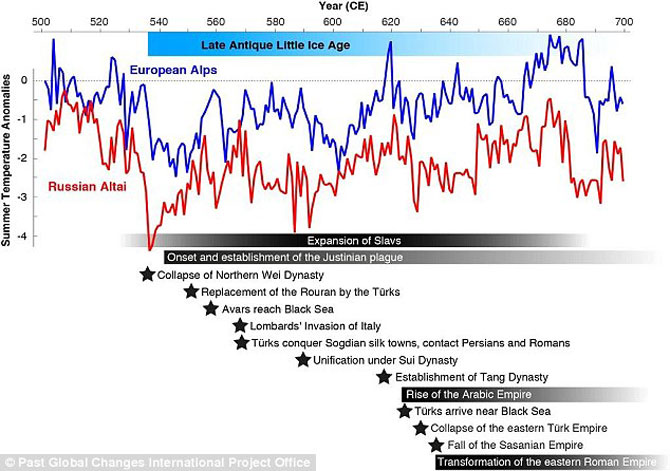Discovered the unexpected cause of the collapse of the ancient Roman empire
Who would have expected, this happened 1,500 years ago, causing the powerful Roman empire to collapse.
The ancient Roman Empire - one of the most powerful civilizations in human history was destroyed about 1500 years ago. And according to a recent study, the cause of this collapse comes from climate change.

Plague and famine have weakened the Roman Empire
More specifically, the researcher Ulf Büntgen and colleagues at the Swiss Federal Institute said that a mini ice age that lasts for 125 years has caused hunger and epidemics that have killed millions of people and caused causing political upheaval that caused the entire empire to collapse.
To determine this, Büntgen looked at the wood grain on the trunk of the Altai mountain - the Russian, Chinese, Mongolian and Kazakh mountain ranges - and compared it to the wood in the European Alps.

With wood grain assessments in the Altai Mountains, scientists who knew 1500 years ago had an "ice age" happening
After the calculation, scientists determined that an ice age occurred in 535 AD. The temperature was then lowered significantly after three major eruption volcanoes in 536, 540 and 547. According to scientists, tons of ash with sulfur molecules blocked sunlight, causing heat to Global level drops.

Chart of thermal fluctuations from 535
The huge amount of ash caused the mini ice age to last for more than a century, severely affecting human food supplies.
In addition, the Justinian plague, which took place in 541, weakened the imperial army, and destroyed millions of people during this time.

According to Büntgen, this ice age is one of the most significant reductions in temperature in the Northern Hemisphere over the past 2000 years.
He said that this is one of the factors worth researching, when climate change can cause political fluctuations on a global scale.
The study is published in Nature Geoscience.
- Life of a citizen of the Roman Empire in ancient times: Every day must survive
- Discover the ancient Roman military road
- Confused about the sexual assault, the tyranny of Roman times
- Why was the Roman empire destroyed? (Part I)
- The most powerful Empire ever defeated the Roman Empire and ended after 'bullying' Russia
- This is what really created a glorious Roman empire
- New hypothesis about the cause of the Roman empire collapsed
- Israel found traces of ancient roads in Jerusalem
- Fraternity is similar to the collapse of the Inca empire
- New discovery: Malaria appears from the Roman Empire
- Israel discovered 1,400-year-old iron nails and hammers from Eastern Rome
- Horrifying revelations about the Eastern Roman Empire
 Discovered an ancient centipede fossil 99 million years old
Discovered an ancient centipede fossil 99 million years old Discovered bat-like dinosaurs in China
Discovered bat-like dinosaurs in China Discovered a 200-year-old bronze cannon of the coast
Discovered a 200-year-old bronze cannon of the coast Discover 305 million-year-old spider fossils
Discover 305 million-year-old spider fossils